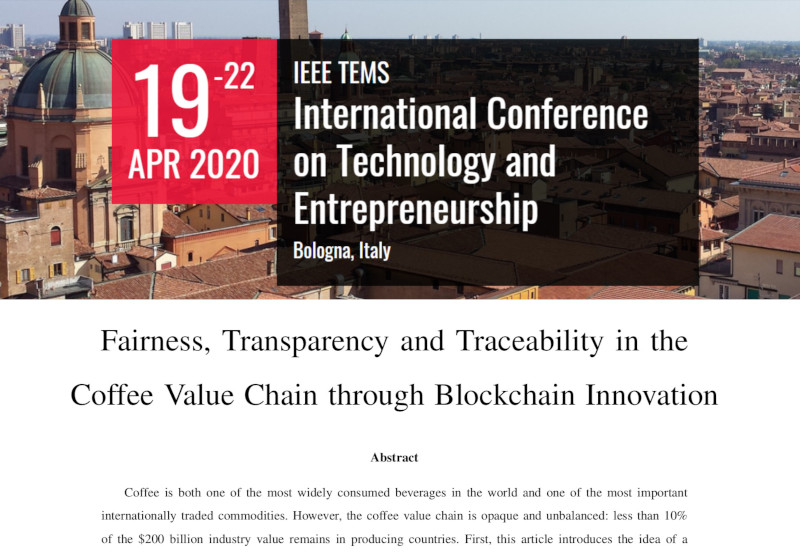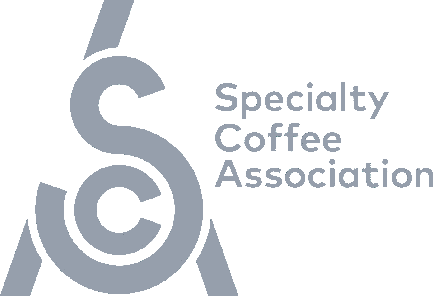How does blockchain work in the coffee supply chain?
Blockchain is a technology that permits to record each transaction in the value chain in a secure way. Imagine it as a secure open book where everyone can read and verify the transactions written on it. The key to this is creating one single ledger that records information about every transaction. Instead keeping individual records of a particular coffee as it passes through different hands, each company along the supply chain inputs all this information into the same ledger. The ledger could record prices, cupping notes, weight, moisture levels, and more.
With blockchain comes a new level of transparency: farmers, roasters, buyers and consumers can be fully aware of the entire coffee journey.
Blockchain & Coffee: Separating the Marketing from the Reality
Myths and mistakes about blockchain and its application to the coffee value chain.
ALL DATA PUT ON BLOCKCHAIN IS PUBLIC
False.
On a public blockchain, transactions are visible to everyone; however, identity is decoupled from the transactions. In a private/permissioned blockchain, access is restricted and managed by an administrator like any internal system.
In the coffee industry, the data stored on the blockchain ledgers are typically accessed via an app that is available for users along the supply chain, from the farm through to the coffee shop. This also means that unlike Bitcoin, the data isn’t necessarily public to everyone. You can only view the information that you are granted access to.
BLOCKCHAIN GUARANTEES TRANSPARENCY AND TRACEABILITY OUT OF THE BOX
False.
Blockchain technology doesn’t automatically translates into a transparent and traceable supply chain. It can create this, but only if all the parties involved want to do so and have access to the technology.
Blockchain doesn’t provide transparency; it protects transparency. It doesn’t provide traceability; it protects traceability.
As for any other technology, blockchain does only what it is designed to do.
COMPANIES NEED ADVANCED TECHNICAL SKILLS TO TAKE ADVANTAGE OF BLOCKCHAIN
False.
While some of the core concepts of blockchain technology can indeed be quite complex, you don’t need to be an expert to start using it and reaping its benefits.
Fantine’s tools and applications are so user-friendly to use, you won’t even notice there’s a blockchain at work behind them. Speak with us if you’d like to implement blockchain technology into your supply chain.
BLOCKCHAIN MAKES COFFEE MORE SUSTAINABLE AUTOMATICALLY
False.
As for transparency and traceability, blockchain technology doesn’t automatically equate to sustainability. Blockchain is just software that protects and provides trust in the collected data.
So if the people using it have no intention of improving sustainability, then it becomes nothing more than a buzzword.
BLOCKCHAIN MEANS BETTER PRICES FOR PRODUCERS
False.
Blockchain enables to digitize the very expensive and time-consuming supply chain paper trail. It permits to make supply chains more efficient and can also cut costs. For instance, by unifying the expensive process of creating ledgers of information across the supply chain, money can be saved.
But just because savings are being made, there’s no guarantee they will be passed back to the farmer. They could be used to pay a more sustainable price to the farmer, or they could instead be kept by each intermediary, increasing their margins. That’s why it’s very important to record the farm-gate price.
IT IS DIFFICULT AND INSECURE TO HANDLE PAYMENTS THROUGH BLOCKCHAIN WALLETS
False.
Blockchain isn’t cryptocurrency. Cryptocurrencies need blockchain technology, but blockchain does not need cryptocurrency. What coffee supply chains and cryptocurrencies have in common is their need to record information that can never be tampered with, and one solution they can both use is blockchain.
However, the coffee supply chain doesn’t need to use cryptocurrency. In coffee, blockchain is just a ledger of the payments made rather than a payment processing system. While it can verify and record the price paid for a coffee, the actual exchange of money can be done in the same way it’s always be done.
BLOCKCHAIN IS ALWAYS BETTER THAN LEGACY SYSTEMS AND TRADITIONAL DATABASES
False.
It very much depends on the particular business case at hand and its specific requirements. Are you unsure? Contact us.
ENTERPRISE BUSINESSES ARE NOT ADOPTING BLOCKCHAIN
False.
Fortune 500 companies across all sectors including banking, fintech, pharmaceutical, technology, agriculture, retail and more, are driving blockchain development.
Redesigning the value chain to make it more transparent and efficient is a collaborative process that requires the effort of all players involved in the supply chain
It won’t happen overnight. However, we believe that this is a necessary step in order to ensure the sustainability of the coffee industry in the long term.
Contact us if you’d like to become part of the change.
Blockchain in Coffee:
Some of the Benefits
We believe that the first step towards improving the balance and the fairness of the coffee industry is to bring transparency into a complex and opaque value chain.
Price Transparency
Ensure producers are paid fair prices for their crops.
Certified Provenance
Certify the coffee’s origin as well as its quality and freshness.
Verified Quality
Control the coffee quality along the supply chain.
Process Optimization
Build better forecasting models, identify bottlenecks and unlock supply chain efficiencies.
Digital Contracts
Digitize the complex and time-consuming supply chain paper trail.
Inclusive Business Models
Give farmers the right visibility and recognition for their work.



